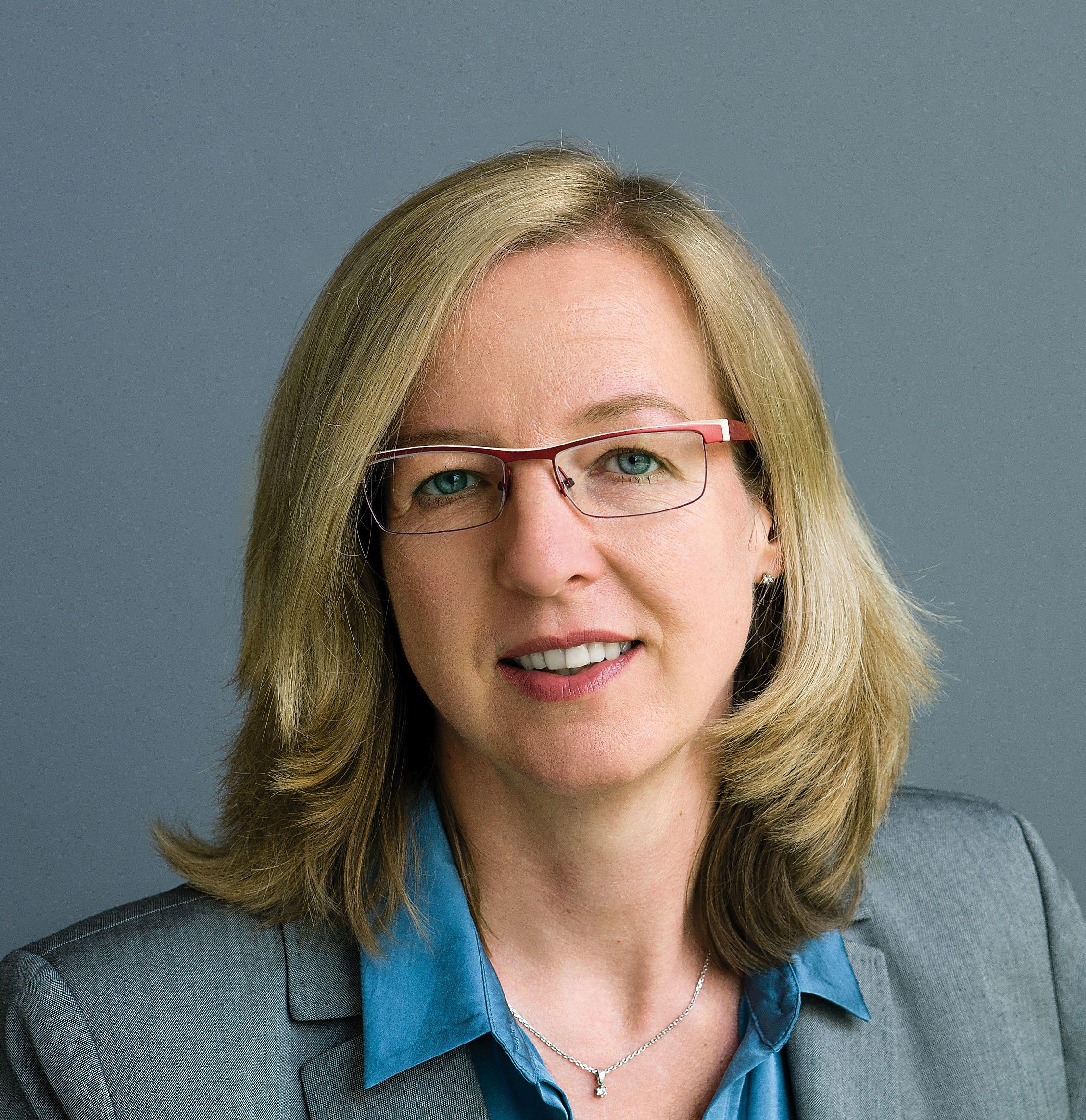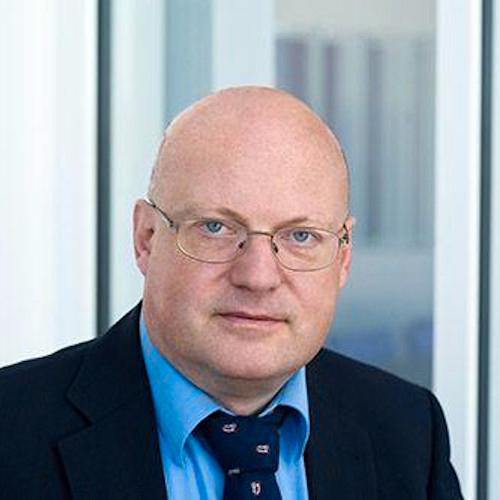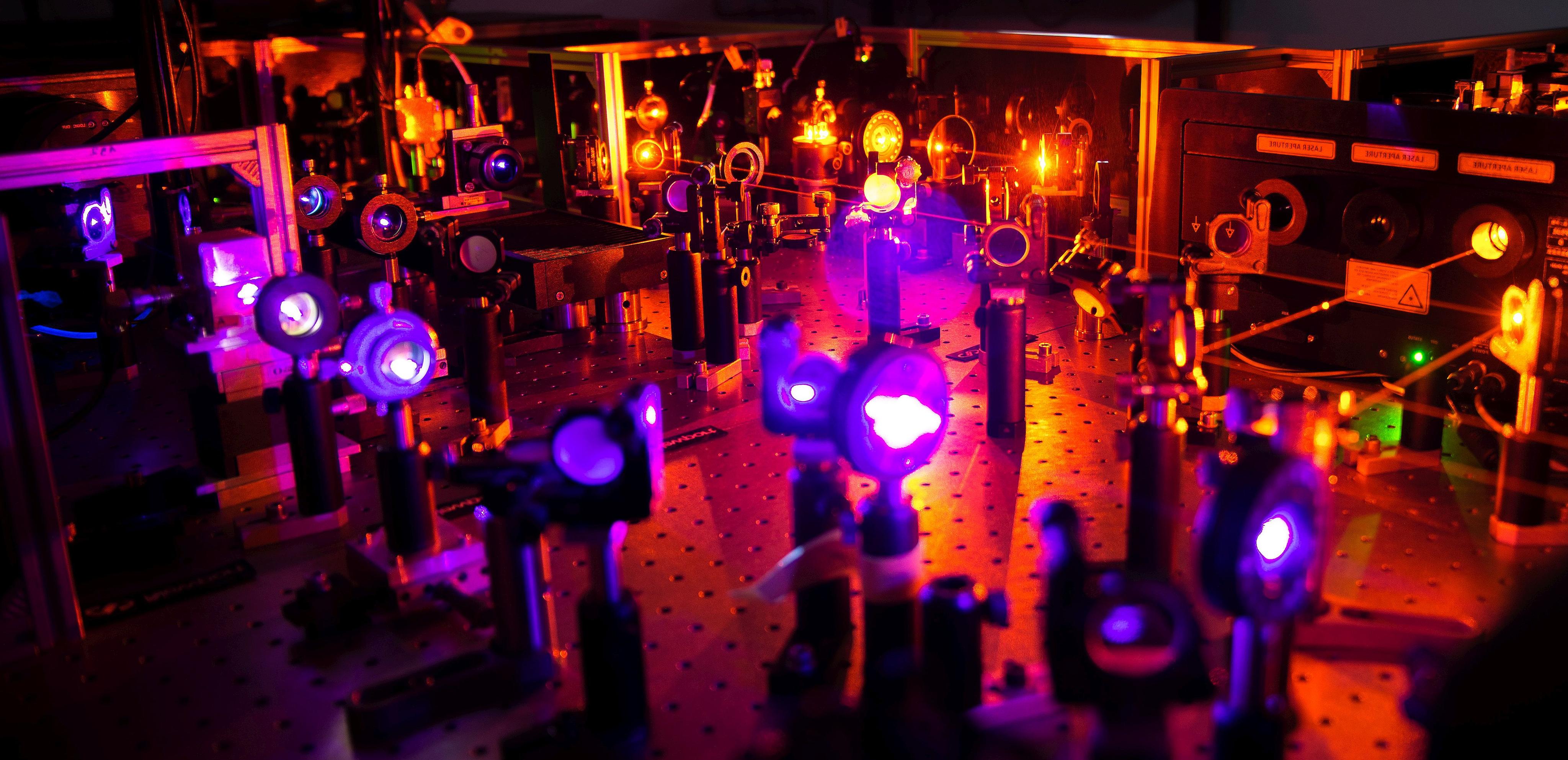News
Nature as a Model in Semiconductor Research: German Science Foundation DFG funds International Research Training Group at the University of Bayreuth
11. November 2022
University of Bayreuth, Press Release No. 183/2022 of 10.11.2022
This is a translation of the original German version.
Together with two Australian partner universities, the University of Melbourne and Monash University, the University of Bayreuth is establishing a new International Research Training Group (IRTG) in the field of semiconductor research. The graduate school will start in spring 2023 and will be funded by the German Science Foundation (DFG) for an initial period of five years with more than six million euros. Outstanding young talents from the fields of physics, chemistry, materials science and engineering can apply for admission to the International Research Training Group and associated positions as research assistants with the aim of obtaining a doctorate.
Bavaria's Minister of Science Markus Blume congratulates: "With this new International Research Training Group, the DFG is ennobling the University of Bayreuth as a top location for globally networked cutting-edge research by outstanding scientific talent! Congratulations on the successful proposal and good luck to the future interdisciplinary team of young researchers with the innovative research approach on organic and inorganic semiconductors!"
The International Research Training Group "Optical Excitations in Organic and Inorganic Semiconductors: Understanding and Controlling by External Stimuli" differs from previous semiconductor research in that it takes a fundamentally new approach: the research aims to control the properties and functions of semiconductors by external factors - namely light, electromagnetic fields or material self-organisation processes in the immediate environment. In particular, the excitations influenced by nanostructuring of organic and inorganic semiconductors are to be compared. Systems that exist in nature for the absorption and transmission of light energy will serve as a model.
So far, the functions of semiconductors are mainly defined by chemical and physical properties of their components, and organic and inorganic semiconductors are treated as separate research areas. The new bio-inspired research approach will overcome these demarcations: Following nature as a guide, adaptable fundamentals of external control will be developed that are transferable to organic as well as inorganic materials and insofar applicable across materials. The Research Training Group, led by the Bayreuth experimental physicist Prof. Dr. Anna Köhler, is therefore decidedly interdisciplinary: Concepts and methods from physics, chemistry, materials science and engineering are linked in all projects. Cooperation partners in research and teaching are two of Australia's leading universities, the University of Melbourne and Monash University. Both are located in Melbourne, where the University of Bayreuth has maintained a "Gateway Office" for four years to intensify scientific cooperation. Both locations are also linked in the field of polymer sciences through the DAAD-funded "Bayreuth-Melbourne Polymer/Colloid-Network".
"Semiconductors have a key function in central technological areas, from photovoltaics to artificial intelligence. I am very pleased that with the new DFG Research Training Group, the University of Bayreuth will develop into an internationally networked location of top-level research in this field - based on an innovative research concept that makes findings in biomimetics fruitful for future semiconductor technologies. The interlocking of theoretical and experimental research in various disciplines, which is characteristic of the Graduate School as well as the entire University of Bayreuth, especially the intensive cooperation between physics and chemistry since the founding of the University of Bayreuth, offers the best conditions for this," says University President Prof. Dr. Stefan Leible.
"The goal of our Research Training Group, to research and test ways of control of organic and inorganic semiconductors based on light and matter, is by no means just a topic for a few specialists. It concerns important fields of the future in general, for example, new forms of sustainable energy production and the careful use of resources. For example, external control of material parameters could significantly increase the efficiency of solar power systems. And if the functionalities of semiconductors no longer depend as much as they do today on the properties of the materials used, new potentials may arise for saving rare materials, which are currently the focus of international competition for raw materials," says Prof. Dr. Anna Köhler, who holds the Chair of Soft Matter Optoelectronics at the University of Bayreuth.
Young researchers who want to pursue an innovative and forward-looking doctoral project will be able to use an excellent infrastructure for fundamental research in Bayreuth and Melbourne, for example, state-of-the-art techniques in the fields of microscopy, spectroscopy and optoelectronics. They take part in a scientific training programme that ensures intensive individual support: both in terms of current research work and concerning long-term career planning. The training programme not only aims to strengthen the doctoral candidates' professional skills but also to promote their general personal development. One focus is the constant scientific exchange in multinational working groups. New ways of transferring knowledge to the economy and society are also the subject of workshops and seminars.
The new International Research Training Group ties in thematically and methodologically with the interdisciplinary Research Training Group "Photophysics of synthetic and biological multichromophoric systems" headed by Prof. Dr. Jürgen Köhler, which was funded by the DFG at the University of Bayreuth from 2010 to 2019. Comparative studies on light absorption and energy transport in biological and synthetic systems were very successful and have opened up exciting career paths in science and industry for outstanding young talents. This experience will be a valuable basis for the close cooperation between the Bayreuth and Melbourne research sites in the new IRTG.

Prof. Dr. Anna Köhler
Chair of Experimental Physics II
Optoelectronics of Soft Matter
University of Bayreuth
+49 (0)921 / 55-2600
anna.koehler@uni-bayreuth.de
https://www.ep2-bayreuth.de

Christian Wißler
Deputy Press Officer, Science Communication
University of Bayreuth
+49 (0)921 / 55-5356
christian.wissler@uni-bayreuth.de


